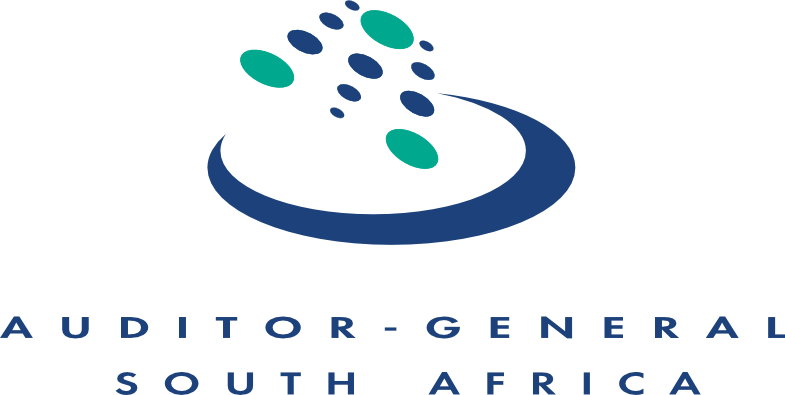Mandate and legal form
The AGSA is South Africa’s supreme audit institution. Our mandate stems from chapter 9 of the Constitution of the Republic of South Africa, 1996. We are an organ of state as defined by sub-section 239(b)(i) of the Constitution, have full legal capacity and act as a juristic person. This makes us one of the institutions created to support constitutional democracy. Our independence is entrenched, subject only to the Constitution and the law. The Constitution also requires us to be impartial, and to exercise our powers and perform our functions without fear, favour or prejudice.
These functions are described in section 188 of the Constitution and chapters 2 and 3 of the Public Audit Act 25 of 2004 (PAA).
Accountability and reporting
We account to the National Assembly by tabling our annual report, strategic plan and budget, financial statements and the audit report on those financial statements. This requirement is governed by subsection 10(2)(b) of the PAA.
Financial and legal independence
Sources of revenue
- Audit fees
- These remain the primary source of our revenue
- The audit fees are discussed with and by auditees’ executive management and audit committees based on the audit effort
- We collect debt of distressed 1% auditees directly from the National Revenue Fund (NRF), in line with section 23 of the PAA.
- Parliamentary appropriations (allocated funding) under exceptional circumstances such as when we implemented our new powers
Functions, beneficiaries and products
By law, we audit and report on how the government spends the South African taxpayers’ money. We undertake two main types of audits: financial audits and discretionary audits (such as performance audits, special audits and investigations).
Our financial audits are mandatory annual audits, during which we audit and report on the financial statements, performance reporting, compliance with key legislation, internal control deficiencies and material irregularities (MIs) of national and provincial government departments, public entities, municipalities and municipal entities (our auditees).
We issue audit reports of the outcomes of our audits and emphasise MIs where we find them. Auditees then include our audit reports in their respective annual reports, which they table to their relevant oversight structures (National Assembly, provincial legislatures or municipal councils).
In addition to these audit reports, we publish general reports in which we analyse the audit outcomes at national, provincial and municipal level, and special reports that analyse our findings from real-time or other standalone discretionary audits.
All our reports are meant to help Parliament and legislatures hold the executive to account for the way they manage public funds.
Other participation
International participation
The AGSA is an active member of the Internal Organization of Supreme Audit Institutions (Intosai). We lead the capacity-building committee (CBC), which is Intosai’s advocate and custodian for capacity development. We also participate in several of Intosai’s working groups, which aim to exchange ideas, knowledge and experience among its members, and find common solutions to identified challenges.
We contribute to developing supreme audit institutions in Africa through strategic development cooperation at a continental level (Afrosai), including our participation on the Afrosai Governing Board and its two capacity development committees.
We further host the secretariat of the African Organisation of English-speaking Supreme Audit Institutions (Afrosai-e), a regional chapter of Intosai. By providing the secretariat with funding, resources and access to technical specialists, we contribute to tailored capacity development for all 26 Afrosai-e members. We also have the privilege of serving on the Afrosai-e Governing Board.
We have also intensified our international participation through an increasing number of international audits.
In 2023-24, our newly acquired international audits included those of the United Nations Educational, Scientific and Cultural Organization (Unesco), the International Centre for Genetic Engineering and Biotechnology (ICGEB) and the African Organization of Public Accounts Committees (Afropac).
External charters, principles and initiatives we subscribe to or endorse
We subscribe to the following standards and principles:
Accounting and auditing
In addition to the normal standards we use for external auditing, we also subscribe to the following:
- The Internal Standards on Auditing (ISAs)
- The International Standards of Supreme Audit Institutions (ISSAI)
- International Standard on Quality Management (ISQM) 1 and 2
- The International Financial Reporting Standards (IFRS)
Ethics
- The International Ethics Standards Board for Accountants (IESBA) Code of ethics for professional accountants
- The Intosai Code of ethics
Corporate reporting
- IFRS Foundation’s Integrated Reporting framework
- Global reporting initiative (GRI) Standards
- Most of the King IV Code of Corporate Governance


